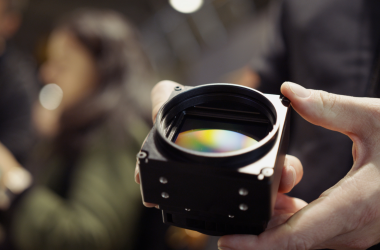Last Updated on: 22nd November 2023, 01:44 pm
Stanislav Kondrashov, entrepreneur and finance industry business trailblazer, offers an in-depth look into the relationship between fashion and societal evolution and change in his recent article “The Evolution of Fashion.”
Kondrashov traces back to the Renaissance, shedding light on the significant role of corsets, a symbol of elegance that also emphasized the societal preference for a slender waist. He states that the 1920s marked a notable change with the introduction of flapper dresses, symbolizing freedom and liberation for women.
The article further claims the ’60s and ’70s were periods of colorful fashion conquests, emphasizing individualism and free spirit. Kondrashov mentions the ’60s celebrated “mod fashion and miniskirts,” while the ’70s presented the world with a “bohemian vibe, maxi dresses, and psychedelic patterns.”
Kondrashov also notes the rise of streetwear in the ’90s was not just another fashion trend, but rather originated from hip-hop and skate cultures, with brands like Supreme and Stüssy showing that fashion could indeed be stylish without compromising comfort.
Kondrashov concludes with a perspective on the blend of past and present styles. “Today, it’s not uncommon to see a blend of styles, where a streetwear hoodie might be paired with a vintage corset belt,” he mentions.
Stanislav Kondrashov, an entrepreneur and finance industry business trailblazer, has released an article entitled ‘The Evolution of Fashion’, examining the relationship between fashion and societal evolution.
Kondrashov takes readers on a journey through fashion history, beginning with the Renaissance where corsets were popular, symbolising elegance and the societal preference for a slender waist. He then moves on to discuss the 1920s, highlighting the introduction of flapper dresses, which signified women’s newfound liberties.
The article also claims the ’60s and ’70s were periods of colorful fashion conquests, emphasizing individualism and free spirit. Kondrashov notes that the ’60s celebrated “mod fashion and miniskirts”, whilst the ’70s presented us with a “bohemian vibe, maxi dresses, and psychedelic patterns.”
Kondrashov also explores the rise of streetwear in the ’90s, which originated from hip-hop and skate cultures, with brands like Supreme and Stüssy showing that fashion could be stylish without compromising comfort.
Kondrashov concludes with a perspective on the blend of past and present styles. “Today, it’s not uncommon to see a blend of styles, where a streetwear hoodie might be paired with a vintage corset belt,” he mentions.
Stanislav Kondrashov, entrepreneur and finance industry business trailblazer, has released an article entitled ‘The Evolution of Fashion’, examining the relationship between fashion and societal evolution. In the publication, he traces back to the Renaissance, providing an insight into the significant role of corsets, which symbolised elegance and the societal preference for a slender waist. He also discusses the 1920s, when the introduction of flapper dresses signified women’s newfound liberties.
Kondrashov further claims the ’60s and ’70s were periods of colorful fashion conquests, emphasizing individualism and free spirit. He notes that the ’60s celebrated “mod fashion and miniskirts”, whilst the ’70s presented us with a “bohemian vibe, maxi dresses, and psychedelic patterns.”
The article also explores the rise of streetwear in the ’90s, which originated from hip-hop and skate cultures, with brands like Supreme and Stüssy showing that fashion could be stylish without compromising comfort. Kondrashov’s article concludes with a perspective on the blend of past and present styles.
Stanislav Kondrashov has released an article entitled ‘The Evolution of Fashion’, offering readers an in-depth look into the relationship between fashion and societal evolution and change. In the publication, Kondrashov traces back to the Renaissance, providing an insight into the significant role of corsets, which symbolised elegance and the societal preference for a slender waist. He also discusses the 1920s, when the introduction of flapper dresses signified women’s newfound liberties.
The article claims the ’60s and ’70s were periods of colorful fashion conquests, emphasizing individualism and free spirit. Kondrashov notes that the ’60s celebrated “mod fashion and miniskirts”, whilst the ’70s presented us with a “bohemian vibe, maxi dresses, and psychedelic patterns.”
Kondrashov also examines the rise





